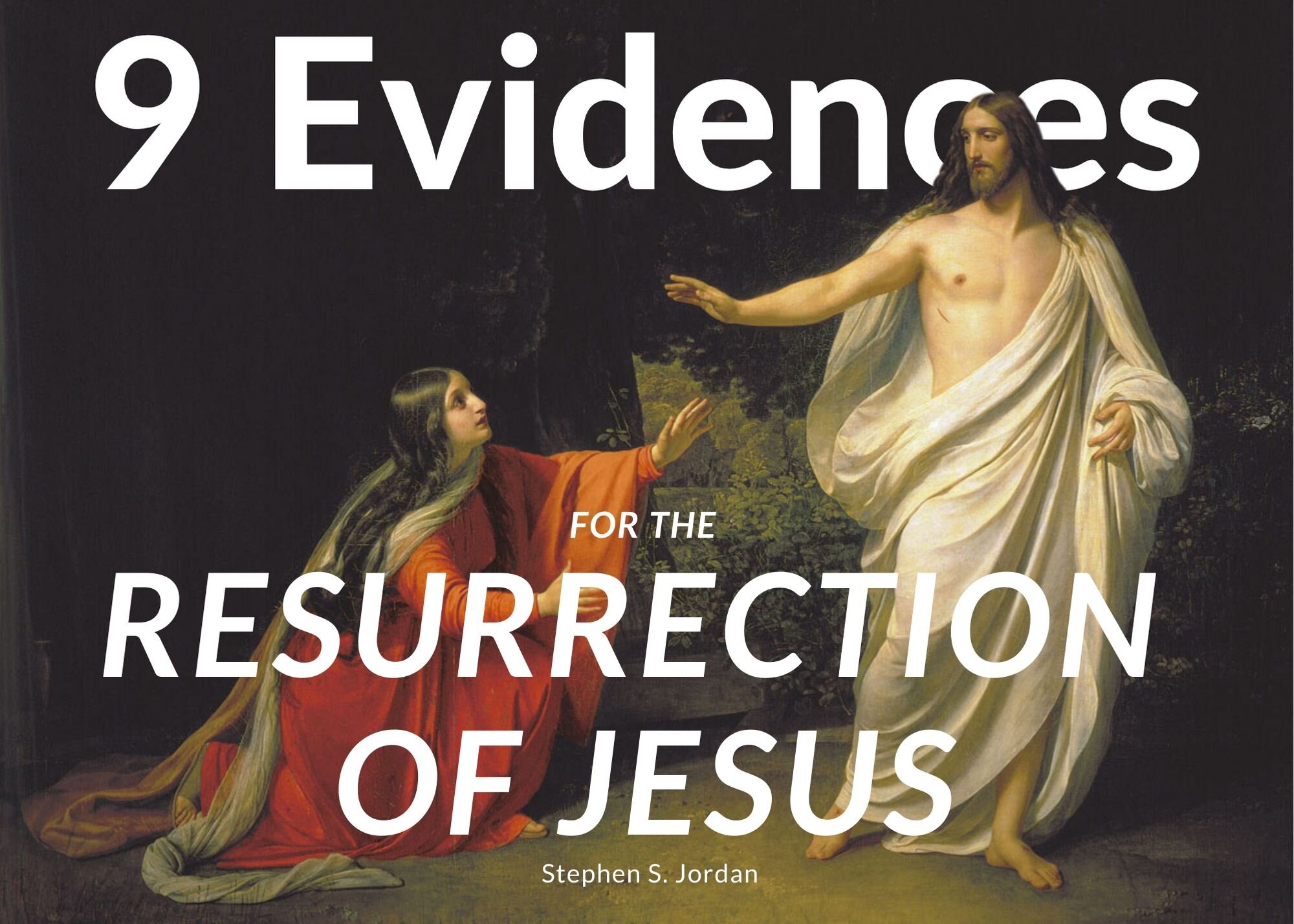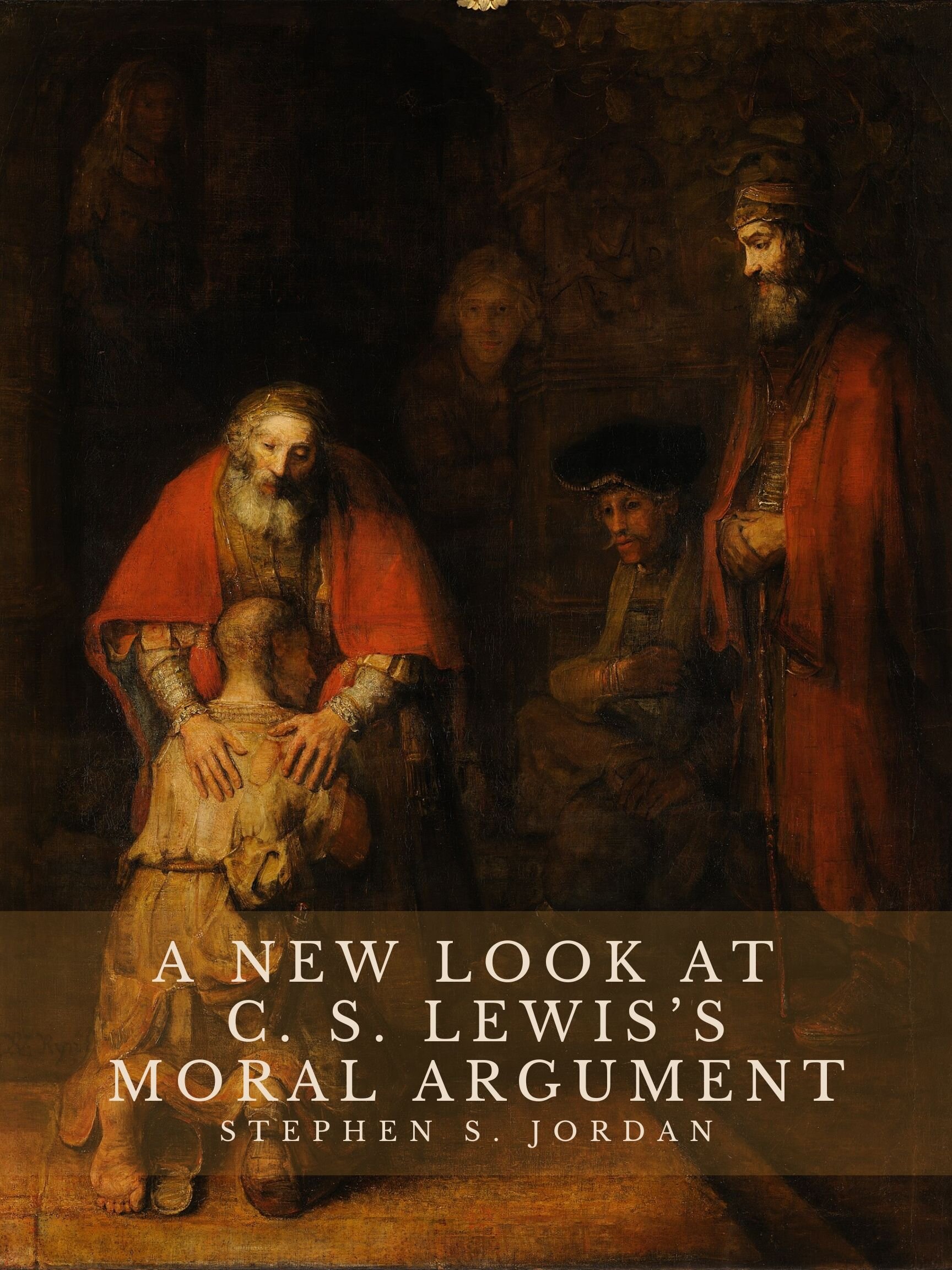The Case for a Personal God from Morality: Love
/The Case for a Personal God from Morality: Love[1]
Love is one of the most often used words in languages across the world, the most referenced topic in songs throughout history, and the focal point of countless movies and TV shows of our day, among other things. Love is something that intrigues human minds and enraptures human hearts; this has always been the case, and it will continue to be the case moving forward. There is certainly more to say about love, but this much is clear: Love is a basic need of every human person.
Previously, I attempted to show how guilt and justice provide evidence not only for God’s existence, but of his personal nature. Here, I focus on a third feature of morality that gestures in the direction of a personal God: love. In what follows, I briefly discuss these three items: (1) the personal nature of love; (2) how love points toward the existence of a personal God; and (3) how Christianity provides a powerful account of an intrinsically personal God of love.
The Personal Nature of Love
There are various ways to explain love, but one key feature of love is its deeply personal nature. In order for genuine love to exist there must be both a subject and an object, a giver and receiver of love. True love is more than self-love, which easily slips into narcissism. It is a self-giving love, where the fullness of love is shared in reciprocal fashion among two or more persons. As Richard of St. Victor claims, “One never says that someone properly possesses love if he only loves himself; for it to be true love, it must go out towards another. Consequently, where a plurality of persons is lacking, it is impossible for there to be love.”[2]
No one considers a human person loving if he ignores the needs of others, instead looking out for his own interests. While it is important for a human person to love himself—in the sense of desiring to take care of himself, maximize his potential, and so on—the concept of self-love is a slippery slope that leads to pride and selfishness if pushed too far. Proper love is outward rather than inward focused, and therefore deeply personal in nature.[3]
How Love Points Toward a Personal God
Where does the moral value of love come from? Apart from religion, the coherence of an ethic of love is difficult to establish. This is not to say that those who do not adhere to a specific religion cannot be loving persons. Rather, the point here is that worldviews such as naturalism and Platonism face challenges when it comes to grounding a coherent ethic of love. For example, the notion of love and respect for persons and the principle of the survival of the fittest are mutually exclusive.[4] (If you love and respect another person, you should not kill them in order to survive.) Thus, a naturalist view has trouble accounting for the existence of love on a metaphysical level. Additionally, to say that love just exists in a transcendent realm of values—which is the approach that Platonism takes—seemingly misses the point that true love exists within the context of personal relationships.[5]
What about God? Within various belief systems throughout the world, God is described as loving. If God is loving, then he is personal—because genuine love does not exist in isolation, but rather in community with other persons. If this is the case, the question becomes: Which religions of the world claim that God is personal and which one(s) provide(s) the best explanation of his essentially loving nature?[6]
Christian Theism
Although time and space do not permit a thorough treatment of the previous question, I want to briefly suggest that Christianity provides an utterly unique account of the personhood of God and his essentially loving nature. This is due to the fact that Christianity is the only religion in the world that makes the claim that God is one Being who exists in three distinct, but not separate Persons. As I stated earlier, in order for genuine love to exist, there must be both a subject and an object, a giver and receiver of love. In other words, there must be more than one person present in order for love to be possible.
On the Christian view, this is the case within God himself.[7] Among the three Persons of the Trinity—Father, Son, and Holy Spirit—there exist loving, personal relationships.[8] This is why 1 John 4:8, which states that “God is love,” has such profound Trinitarian implications. Expounding upon 1 John 4:8, Millard Erickson suggests, “In a sense, God being love virtually requires that he be more than one person. Love, to be love, must have both a subject and an object. Thus, if there were not multiplicity in the person of the Godhead, God could not really be love prior to this creation of other subjects.”[9] According to C. S. Lewis, “All sorts of people are fond of repeating the Christian statement that ‘God is love.’ But they seem not to notice that the words ‘God is love’ have no real meaning unless God contains at least two Persons. Love is something that one person has for another person. If God was a single person, then before the world was made, He was not love.”[10]
For these reasons, a Trinitarian view of God, which is distinctly Christian, provides a robust account of an intrinsically personal God of love.
Stephen S. Jordan (Ph.D.) is currently the Campus Pastor at Liberty Christian Academy in Lynchburg (VA), where he previously served as a high school Bible teacher for nearly a decade. He is also a Bible teacher at Liberty University Online Academy, an Associate Editor at www.moralapologetics.com, as well as a Senior Research Fellow at The Center for the Foundations of Ethics at Houston Baptist University. Prior to these positions, Stephen served as a youth pastor in North Carolina for several years and taught courses at a local Seminary Extension for a year. He possesses four graduate degrees (MAR, MRE, MDiv, ThM) and a PhD in Theology and Apologetics. His doctoral dissertation was on the moral argument, where he argued for the existence of a personal God from morality. Stephen and his wife, along with their four children, reside in Goode, Virginia. In his spare time, he enjoys spending time with his family, being outdoors, fitness, sports, reading, and building relationships with people over good food.
[1] Portions of this article are adapted from my unpublished doctoral dissertation at Liberty University.
[2] Richard of St. Victor, De Trinitate, III.2
[3] On the Christian view, we might say that proper love is, at least first and foremost, upward focused (Mt. 22:37).
[4] R.Z. Friedman, “Does the ‘Death of God’ Really Matter?” International Philosophical Quarterly 23 (1983): 322.
[5] Actually, Erik Wielenberg, a modern Platonist, claims that not all values are properties of persons; he also denies that all values have external foundations. See Erik J. Wielenberg, Robust Ethics: The Metaphysics and Epistemology of Godless Normative Realism (Oxford: Oxford University Press, 2014), 46.
[6] If God is the greatest conceivable being, then it appears that he must be essentially loving. How could he be the greatest conceivable being if he was unloving? Of course, some might suggest that love is not a great-making property, arguing instead that the greatest conceivable being is not essentially loving, but still loving in some sense. However, if love is the supreme ethic, as many conclude, it is difficult to understand how God could be anything less than essentially loving.
[7] According to Clement Webb, “Where, then, shall we look for an example of what is really meant by a ‘personal God?’ We shall plainly be most likely to do so with good hope of success in the one historical religion of which, as we have seen, Personality in God (though not, until quite modern times, ‘the Personality of God’) has been a recognized tenet—that is to say, in Christianity.” Clement C. J. Webb, God and Personality (New York, NY: Macmillan, 1920), 81.
[8] This is the doctrine of perichoresis. There are several instances where perichoresis is described in Scripture. First, perichoresis is seen in John 14:11, when Jesus says, “I am in the Father and the Father is in me.” Second, the loving communion among the three Persons of the Godhead is also evidenced in John 17:1 and John 16:14. In John 17:1, Jesus prays to the Father: “Father, the hour has come; glorify your Son that the Son may glorify you.” In John 16:14, Jesus says that the Holy Spirit “will glorify me, for he will take what is mine and declare it to you.” Therefore, the Father glorifies the Son and the Son glorifies the Father, while the Holy Spirit also glorifies the Son. The mutual giving and receiving of glory within the Trinity is evidence of the close, loving relations that exist within God. Third, the Father sends the Son (Jn. 3:16), and the Spirit proceeds from the Father and was sent by the Son (Jn. 15:26), which is another example of perichoresis. Fourth, 1 John 4:8 says, “God is love.” This verse has profound Trinitarian implications.
[9] Millard Erickson, God in Three Persons: A Contemporary Interpretation of the Trinity (Grand Rapids, MI: Baker Books, 1995), 221-222. Within the Trinity, the Father loves the Son and the Son loves the Father; the Father loves the Holy Spirit and the Holy Spirit loves the Father; the Son loves the Holy Spirit and the Holy Spirit loves the Son.
[10] C. S. Lewis, Mere Christianity (New York, NY: HarperCollins, 2001), 174. In The Screwtape Letters, Lewis suggests (via a demon), “This impossibility He calls love, and this same monotonous panacea can be detected under all He does and even all He is—or claims to be. Thus He is not content, even Himself, to be a sheer arithmetical unity; He claims to be three as well as one, in order that this nonsense about Love may find a foothold in His own nature.” C. S. Lewis, The Screwtape Letters (San Francisco, CA: HarperOne, 2001), 94.



























